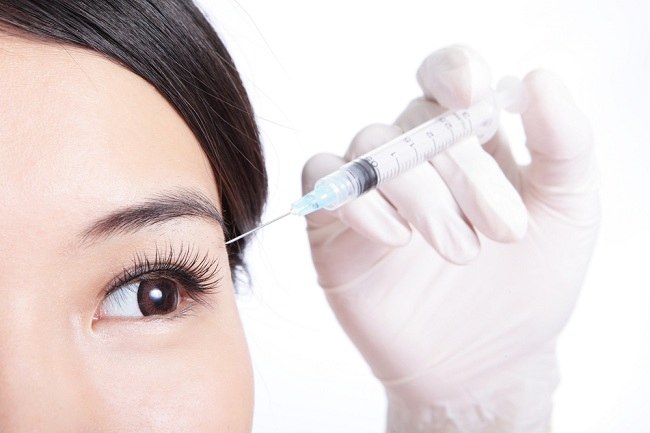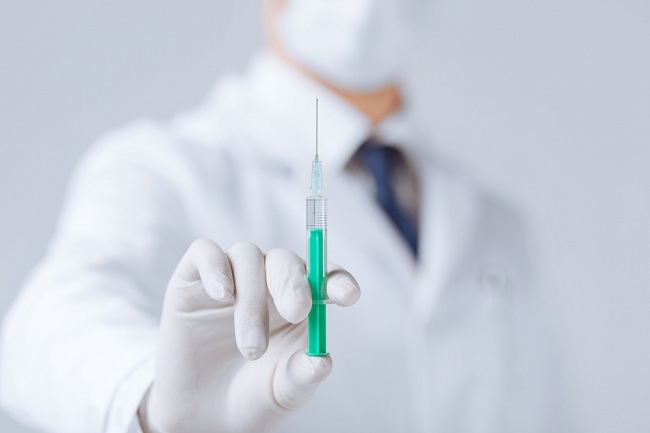Chromosomal abnormalities in babies can occur in pregnancy without you knowing it. Regular pregnancy check-ups are needed so that this condition can be detected early. Thus, appropriate treatment steps can be taken to prevent risks disease due to chromosomal abnormalities.
Chromosomal abnormalities in infants are rare conditions, but they often go unnoticed and are only detected through pregnancy tests. If not treated immediately, the disorder can cause miscarriage, congenital disease in the baby, and other conditions due to chromosomal abnormalities, such as gametogenesis problems and Down's syndrome.

What are Chromosomal Abnormalities?
Chromosomes are components that contain the genetic structure in body cells. Normally, the total number of chromosomes in the human body is 46 and 2 of them are sex chromosomes called X and Y chromosomes.
One of the conditions caused by chromosomal abnormalities is Down syndrome. This condition can cause sufferers to experience developmental disorders and physical forms that are different from normal children, such as a shorter neck and small ears.
People with Down syndrome are also more at risk of developing congenital heart defects. In addition to Down's syndrome, chromosomal abnormalities can also cause various other diseases, such as Patau's syndrome, phenylketonuria, cleft lip, and Edward's syndrome.
Early Detection or Screening of Chromosomal Abnormalities
Examination of fetal chromosomes can generally be done at about 11-20 weeks of gestation. Before you undergo this examination, the doctor will usually carry out an obstetrical examination first, namely with a physical examination and supporting tests, such as ultrasound and blood tests.
Ultrasound examination aims to detect physical abnormalities, such as spina bifida. Meanwhile, blood tests are done to detect certain abnormalities, such as sickle cell anemia. Both types of examination can also be done as an initial examination to find any chromosomal abnormalities.
If the results of the examination indicate the possibility of a chromosomal abnormality in the baby, the doctor may suggest further tests to detect these possibilities, such as:
1. Amniocentesis
Amniocentesis is an examination of the baby's chromosomal abnormalities by taking a sample of the amniotic fluid. This examination can be done when the gestational age has reached about 15-20 weeks. Amniocentesis can be done to detect various types of chromosomal abnormalities, such as Turner syndrome.
Although it is important to do, amniocentesis performed in the second trimester of pregnancy has a low risk of causing miscarriage, which is around 0.6%. The risk of miscarriage is higher if this procedure is performed before 15 weeks of gestation.
2. Chorionic villus sampling (CVS)
CVS is done by taking a sample of cells chorionic villus identical to fetal cells using a special needle. This procedure is performed with the help of ultrasound.
Usually, this test is done early in pregnancy, i.e. weeks 10 to 13. This test can also be done to detect genetic abnormalities in the fetus.
CVS results are usually quicker than other tests, giving you more time to make an informed decision about pregnancy.
However, CVS procedures are at risk of causing miscarriage if performed in the first 23 weeks of pregnancy. The potential for miscarriage is estimated to occur in 1 in 100 pregnancies.
3. Fetal blood sampling (FBS)
This test to detect chromosomal abnormalities is done by taking a sample of fetal blood directly from the umbilical cord. FBS is also done to check oxygen levels in the blood and detect whether the fetus has certain conditions, such as infection and anemia.
The FBS procedure carries the highest risk of miscarriage than any previous test. Therefore, your doctor may suggest that you do an amniocentesis or CVS test before having an FBS test.
In addition to the three examinations above, there is a non-invasive and safer screening examination, namely: nuchal translucency. This examination cannot confirm the diagnosis as in the genetic examination above, but can determine whether the fetus is at high risk of developing Down syndrome or not.
Common Types of Chromosomal Abnormalities in Babies
Chromosomal abnormalities can cause health problems or disability in babies. This condition tends to be more at risk for fetuses born to mothers who are old or have certain genetic disorders.
The following are some of the most common chromosomal disorders that can be detected by some of the tests above:
Down syndrome
This condition is an abnormality in the number of chromosomes that causes sufferers to experience learning disabilities and have a different physical appearance from other individuals.
Spina bifida
This condition occurs when the baby's spine and spinal cord do not develop properly in the womb, causing gaps in the baby's vertebrae.
Spina bifida can be caused by a lack of folic acid intake in pregnant women, a family history of similar diseases, and side effects of certain drugs taken during pregnancy.
Thalassemia
Thalassemia is a hereditary blood disorder that causes red blood cells to not function normally. This condition can only be obtained if the child inherits the thalassemia gene from both parents.
This disease makes red blood cells unable to carry oxygen properly, so the sufferer will easily get tired, short of breath, and experience complications in the form of heart failure and growth disorders. Patients with thalassemia are also prone to anemia.
Until now, there is no treatment that can cure chromosomal abnormalities. However, this condition can be detected as early as possible so that doctors can prepare appropriate treatment steps for fetuses with these abnormalities.
Therefore, it is important to have regular pregnancy check-ups with the obstetrician on schedule. During the consultation, you can ask the doctor whether an examination is necessary to detect chromosomal abnormalities in the baby, especially if there is a history of genetic disorders in the family.









